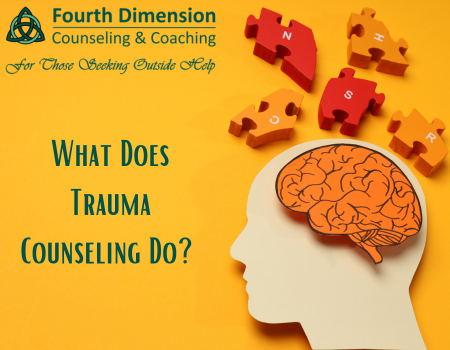Life throws us curveballs. Sometimes, these curveballs take the form of traumatic events that leave us feeling shaken, scared, and unsure of how to move forward. Trauma counseling, also known as trauma-informed therapy, provides a safe space for individuals to process these experiences and develop healthy coping mechanisms.
But what exactly does trauma counseling do?
Understanding Trauma
Trauma can arise from a single, significant event like a car accident, natural disaster, or violent crime. It can also stem from repeated experiences like childhood abuse, neglect, or bullying. The defining characteristic is the feeling of helplessness, fear, and loss of control associated with the event(s).
The impact of trauma can manifest in various ways, both emotionally and physically. Common symptoms include:
 Flashbacks
Flashbacks- Nightmares
- Anxiety
- Depression
- Difficulty concentrating
- Hypervigilance (being constantly on edge)
- Avoidance of reminders of the trauma
- Difficulty trusting others
- Substance abuse
How Trauma Counseling Works
Trauma counseling is a two-way street where the therapist and the client work together. The therapist creates a safe and supportive environment where the client feels comfortable exploring their experiences. This exploration happens at a pace the client is comfortable with, and there is no pressure to rush or relive the trauma in detail.
Here are some key aspects of what trauma counseling can do:
- Psychoeducation: The therapist provides information about trauma, its effects, and how to manage symptoms. This empowers the client to understand what they are going through and normalizes their reaction.
- Processing Memories: Trauma counseling helps individuals process traumatic memories in a safe and controlled way. Techniques like EMDR (Eye Movement Desensitization and Reprocessing) can help to decrease emotional distress associated with the memories.
- Skills Development: Trauma counseling equips individuals with coping mechanisms to manage their emotional and physical responses to stress and triggers. This might involve relaxation techniques, mindfulness exercises, or communication skills.
- Building Resilience: Trauma can shatter our sense of security and control. Trauma counseling helps individuals rebuild their confidence and develop the inner strength to navigate challenges in a healthier way.
- Reclaiming Power and Control: The experience of trauma can leave a feeling of helplessness. Trauma counseling enables the client to assume agency in their healing process and regain a sense of control over their life.
Finding the Right Therapist
There are different types of trauma therapy, and therapists have their areas of specialization. At Fourth Dimension Counseling, you will find a team of experienced therapists who can connect you with a specialist who meets your specific needs.
The Importance of Healing
Trauma is not something to be ignored. Left untreated, it can have a lasting impact on your mental and physical health. Trauma counseling provides a pathway to healing and allows you to move beyond the limitations of your past. It empowers you to build a more fulfilling and resilient life.
Benefits of Trauma Counseling
Here are some of the many benefits of trauma counseling:
- Reduced PTSD symptoms
- Decreased anxiety and depression
- Improved sleep
- Increased self-esteem and confidence
- Improved relationships
- Greater emotional regulation skills
- Increased sense of personal empowerment
Taking the First Step
Acknowledging that you need help can be challenging, but it’s a sign of strength. If you are struggling with the aftermath of a traumatic event, you don’t have to go through it alone. Trauma counseling can make a difference. Consider reaching out to a therapist who specializes in trauma at Fourth Dimension Counseling.
